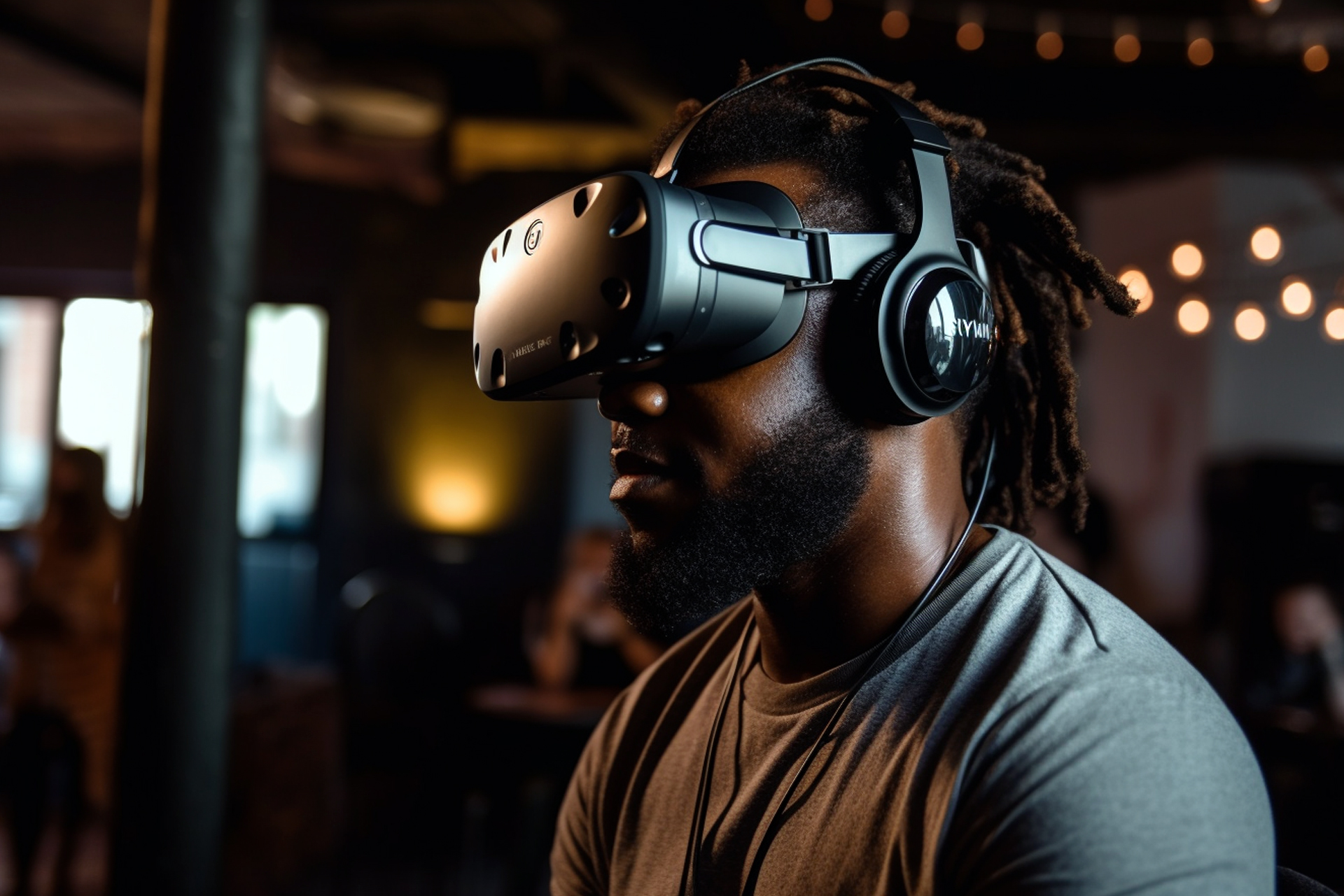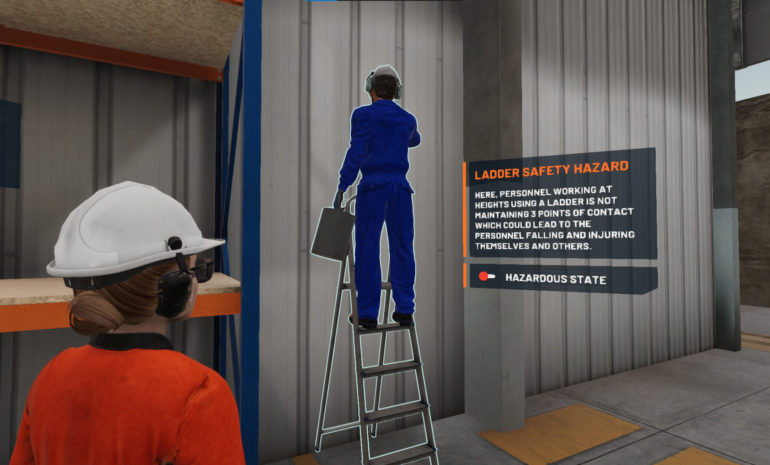In the rapidly changing world of technology, Nigeria’s tech sector has experienced remarkable growth, witnessing the emergence of innovative startups and technological advancements that have made a significant economic contribution to the nation and brought in billions of dollars in revenue.
Despite this rapid development, certain innovative technologies have yet to realize their full potential. In Nigeria’s digital sector, technologies like virtual reality (VR) and augmented reality (AR) have, to some extent, are being underutilized.
In this short piece, we will examine the numerous opportunities and potential uses of VR and AR technologies in Nigeria. By examining various sectors, we aim to shed light on the untapped possibilities that extended reality technologies hold for Nigeria’s future.
1. VR Marketing
Nigeria is the 40th largest e-commerce market with a projected revenue of $6.7 billion in 2023. This projected revenue reveals that there are still untapped potentials in Nigeria’s e-commerce sector. One way to harness this is through application of virtual reality (VR) and augmented reality (AR) to e-commerce. XR technologies, when applied appropriately, are game-changers that can enhance the online shopping experience.
Businesses of different types from shopping mall, to fashion outlets, to automobile and much more, can use VR and AR to demonstrate and promote their products to potential customers long before they step into their physical store, if ever! As a matter of fact, the main use of VR is to virtually immerse people in places they might otherwise not be able to for certain reasons. VR and AR technologies empower businesses to create immersive, personalized marketing experiences that resonate with consumers; they allow for realistic product demos, addressing concerns over product quality and increasing e-commerce adoption and sales.
2. Cultural Sensitization and Preservation
Nigeria is a country with a rich cultural heritage and a diverse population. Yet, this invaluable heritage faces the risk of fading into obscurity as the younger generation leans towards more modern lifestyles. With VR, these cultural heritage can be preserved! VR is perfect for recreating cultural heritage sites, practices thereby preserving public memory,
VR is also becoming a mainstay for exhibiting arts, cultural organizations and showcasing ancient landmarks. By leveraging these technologies to craft interactive 3D recreations of historical events and traditions, the younger generations can increasingly become acquainted with their heritage through the use of VR from wherever they are.
3. Personnel Training
The applications of VR and AR technology in training are a paradigm shift in the military, medical, educational sectors and across various other sectors. These cutting-edge technologies provide a platform where, for instance, military officers, surgeons, psychologists, therapists, and educators can immerse themselves in realistic environments and simulate real life training scenarios without jeopardizing lives or resources.
With VR and AR, military simulations can hone the skills of soldiers in lifelike scenarios, medical professionals can practice procedures in a risk-free digital realm, and educators can engage students in immersive learning experiences. This transformative approach to training promises to elevate expertise, reduce risks, and maximize efficiency across diverse fields, setting a new standard for professional development in Nigeria.
4. Real Estate Industry
In Nigeria’s real estate sector, AR and VR technologies present invaluable tools for property marketing. Real estate marketers can leverage VR to develop immersive virtual property tours, enabling prospective clients to undertake virtual walkthroughs and inspect properties before a physical visit. With more and more Nigerians in the diaspora, VR is a great marketing tool to market real estate to these far-away clients.
Virtual tours foster a personal connection between clients and properties, ultimately driving increased sales for real estate businesses. Furthermore, these technologies empower real estate firms to design more realistic and visually compelling architectural structures (for off-plan projects), enhancing the overall customer experience in the industry.
5. Enhancing Education
Virtual Reality (VR) and Augmented Reality (AR) technologies are changing the educational sector in Nigeria. With immersive learning experiences, they provide personalized learning environment, allowing students to advance at their own speed and delve deeper into subjects. One key advantage is practical learning, with virtual labs and simulations providing hands-on experience in subjects like science and engineering, where physical resources can be limited. VR/AR also bridges geographical gaps, allowing for remote learning.
Furthermore, these technologies help take students to historical and cultural sites, enhancing understanding of not only Nigeria’s heritage, but the cultures of remote lands as well.
6. Nigeria’s Nollywood
Virtual Reality (VR) and Augmented Reality (AR) offers Nollywood, Nigeria’s renowned film industry, a groundbreaking opportunity to expand their audience. This change promises to raise Nollywood’s worldwide reputation, offering a host of exciting possibilities for both filmmakers and audiences.
Using VR, movie fans can dive into the story or watch the movie in a fully interactive and immersive virtual (customizable) 3D space. They can look and move around a 3D-rendered environment or watch the movie, virtually, in their favourite cinema.
Nollywood can also use these technologies to train actors and directors, thus improving performance and production efficiency. Moreover, as hinted above, the advent of virtual cinemas powered by VR headsets presents new avenues for revenue, enabling audiences to enjoy movies in a communal, immersive setting without leaving their homes.
7. Oil and Gas
The Nigerian oil and gas industry, a pillar of the country’s economy, stands a lot to gain by leveraging on the innovative solutions that virtual and augmented reality (VR/AR) can offer. Oil and gas companies are beginning to find innovative ways to leverage on the huge advantage of VR for subsurface studies, training and simulation, and for developing and improvising processes and safety.

XR generally has enormous potential to transform the sector’s exploration, safety, training, and remote operations. These immersive technologies help improve procedures, cut costs, and maximize operational efficiency, thereby enhancing Nigeria’s oil and gas industry to become more technologically sophisticated and sustainable.
These advancements not only improve exploration by allowing scientists and engineers to make better decisions, but they also raise safety standards through cost-cutting immersive technical and safety training.
8. Virtual Tourism
The travel industry is a money making machine for countries that knows how to market their offerings. And VR tourism marketing is increasingly becoming the go-to marketing strategy for many industry players. The travel industry stands a lot to gain from adopting VR. VR gives users an experience of a destination that they wouldn’t get from looking at pictures, visiting a website or browsing a brochure. With VR, an hotel, resort, and other players can place the user at the heart of the scene and makes it easier for the user to imagine themselves at the location or facility.
In a nutshell, virtual tourism utilizes VR to offer immersive, informative and cost-effective travel experiences. It will allow potential tourist to Nigeria to virtually explore and get excited about destinations they may eventually want to visit in-person. On the other hand, when it is physically or financially challenging to visit, VR tourism makess cultural exploration more inclusive.
Conclusion
The integration of VR and AR across Nigeria’s industries and economy holds immense promise, benefiting entrepreneurs, investors, and the workforce. These technologies have the potential to boost businesses sales, increase the workforce technical capacity, and foster economic growth. In summary, the adoption of virtual and augmented reality stands to benefit both individuals and the broader Nigerian economy.
If you are in Lagos, Abuja, Ibadan or anywhere in Nigeria and needs a VR/AR company, Insightful3d Studio is your preferred virtual tour/reality company. Trusted by tens of top brands, we help you create immersive VR contents that meets your business objectives. Contact Insightful3d today or call +234 906 000 6378.


